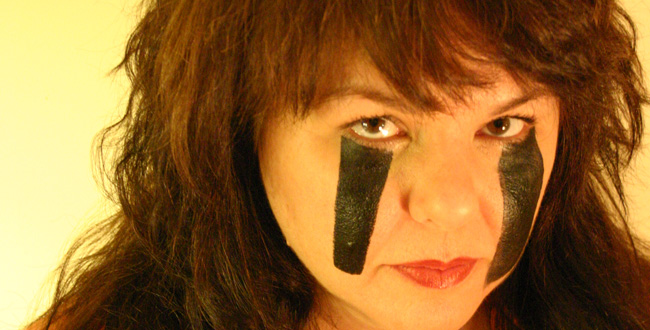Unknown/unstated paternity and the Indian Act

Witness First Hand Canada’s Commitment to Reconciliation …
Unknown / Unstated Paternity and the Indian Act: Lynn Gehl versus the Attorney General of Canada
By Lynn Gehl
The History of Sex Discrimination
Through a series of legislative acts dating back to the 1857 Gradual Civilization Act, Indian women and their children were enfranchised when their husband or father was enfranchised. It was through the 1869 Gradual Enfranchisement Act where Indian women, along with their children, who married non-Indian men were enfranchised, denied Indian status registration and their treaty rights. At this time, as per the European model, women were considered appendages of their husbands and therefore if, and when, they married a non-Indian man they too became a non-Indian. Eventually the process of eliminating status Indians through sex discrimination was codified in section 12(1)(b) of the 1951 Indian Act.
Indigenous Women’s Actions
On the national and international level it was Mary Two-Axe Early who, in 1966, began to speak publicly about the matter. Eventually she approached the Royal Commission on the Status of Women. It was in 1971 when Jeannette Corbiere took the matter to court arguing it violated the Canadian Bill of Rights. Yvonne Bedard was also addressing it where in 1973 the case was heard at the Supreme Court of Canada level. Relying on a patriarchal line of reasoning the SCC ruled that because Indian women who married non-Indian men had equality with all other Canadian married women there was no sex discrimination. Although this decision was a setback, in 1981 Sandra Lovelace appealed to the United Nations Human Rights Committee regarding section 12(1)(b). Because her marriage and loss of Indian status registration occurred prior to the International Covenant on Civil and Political Rights the UNHRC declined to rule on the sex discrimination.
The Legislative History of Unknown / Unstated Paternity
In 1927, section 12 of the Indian Act, which remained in place until 1951, stated that any illegitimate child may, unless s/he has, with the consent of the band whereof the father or mother of such child is a member, shared in the distribution moneys of such band for a period exceeding two years, be, at any time, excluded from the membership. This criterion was broad and inclusive in that all that was required was the sharing of band funds. From 1951 through 1956 the criteria of who was an Indian shifted slightly where the test was that the Registrar had to be satisfied that the father was not an Indian in order to omit adding a name to the register. This shifted again from 1956 through 1985 where section 12(2) stated that illegitimate children were automatically added to the Indian register whereby the band had twelve months to protest. This provision protected Indigenous mothers and their children. That said, if and when a protest was made and the Registrar determined that the father of the child was a non-Indian person, then the child’s name was removed from the official Indian register. In sum, although regulated and although the inclusive process was once narrowed, it was eventually re-expanded to include all children regardless of non-paternity disclosure unless a successful protest was made. This process of inclusion remained in place until 1985.
The 1985 and 2011 Amendments to the Indian Act
Despite decades of advocacy and litigation work by Indigenous women that led to amendments to the Indian Act in 1985 and 2011, under Aboriginal Affairs’ current regime, and as of 1985, a father must sign his baby’s birth certificate for his Indian status registration to be factored into the child’s eligibility. Otherwise, through an unstated paternity policy, the Registrar applies a negative assumption of paternity whereby the child may not be entitled to Indian status, and consequently band membership and her/his treaty rights. This assumption of non-Indian paternity is sex discrimination. What is particularly disturbing about this is the way it targets Indigenous mothers and children. Women sometimes conceive through an abuse of power such as in situations of incest, rape, gang rape, sexual slavery, and prostitution where as such the terms un-reported, unnamed, unacknowledged, un-established, unrecognized, and unknown paternity are more appropriate descriptors.
A Public Court House
Ontario Superior Court of Justice
393 University Avenue, Toronto
October 20 – 22, 2014 at 9:00 am
For more information see www.lynngehl.com
Dr. Lynn Gehl is an Algonquin Anishinaabe-kwe from the Ottawa River Valley. She has a section 15 Charter challenge regarding the continued sex discrimination in The Indian Act, and is an outspoken critic of the Ontario Algonquin land claims and self-government process. She has three books: Anishinaabeg Stories: Featuring Petroglyphs, Petrographs, and Wampum Belts, The Truth that Wampum Tells: My Debwewin of the Algonquin Land Claims Process, and Mkadengwe: Sharing Canada’s Colonial Process through Black Face Methodology. You can reach her at lynngehl@gmail.com and see more of her work at www.lynngehl.com.


